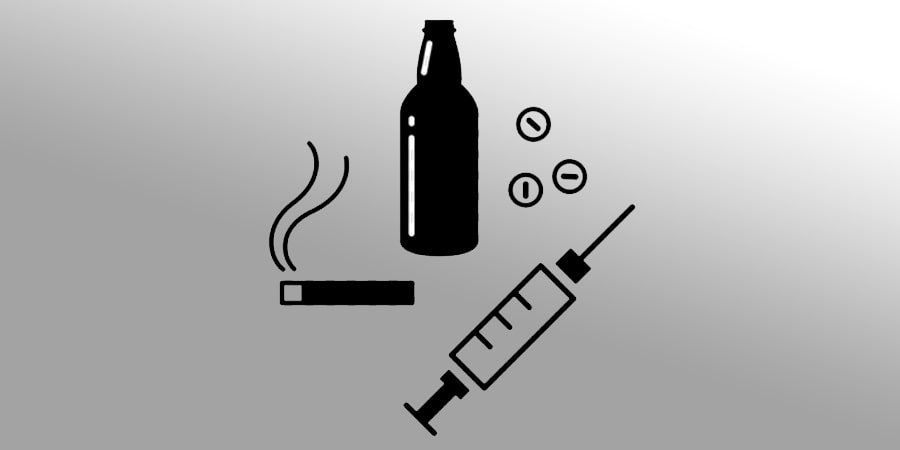Substance Use Disorders Types

Substance abuse is the excessive use of a substance, leading to dangerous behaviors like driving while intoxicated or continued use despite social, psychological, occupational, or health problems. Substance dependency is a severe form of addiction, involving a significant biological need for more of a substance to achieve the desired effect. Dependency means developing a tolerance to a substance or experiencing withdrawal symptoms when it is unavailable.
Do you know someone who regularly consumes a drug? Many of us have enjoyed a glass of wine, smoked a cigarette, consumed soda, or taken a sleeping pill at some point in our lives. Substances like alcohol, nicotine, and caffeine include critical drugs that affect user behavior.
Alcohol and cigarettes are commonly used to relax after a hectic workday. Drinking caffeinated beverages to boost stamina and using medication to relieve pain are even more common. Such use is typically normal and unlikely to cause severe problems if done carefully.
However, some people misuse substances more frequently. You might know a friend who drinks alcohol or smokes half a pack of cigarettes daily. While this is substance abuse on a larger scale, it is not necessarily problematic if they can stop or are not physically addicted.
Yet, some individuals continue to use substances at higher levels. You likely know someone who drinks and smokes daily, disrupting their daily functioning and increasing the risk of physical harm. They may attempt to drive after drinking, argue about taking pain relievers unnecessarily, or struggle to get out of bed in the morning for work. These signs indicate a substance-related disorder.
The journey to recovery begins with understanding the different faces of addiction. Let’s explore the diverse types of substance use disorders that can ensnare individuals from all walks of life.
Types of Substances
Depressants
Depressants cause behavioral sedation and help people relax. They include alcohol, sedatives, and hypnotic medications like barbiturates (e.g., Seconal) and benzodiazepines (e.g., Valium, Xanax). These reduce central nervous system activity, physiological alertness, and aid in relaxation. They are prone to creating physical dependency, tolerance, and withdrawal symptoms.
Stimulants
Stimulants make us more attentive and active, often improving mood. This category includes amphetamines, cocaine, caffeine, and nicotine. Stimulants are among the most regularly used psychoactive drugs in the United States. For over 5,000 years, Chinese physicians recommended an amphetamine derivative called ma-huang (Ephedra sinica) for various ailments.
Opiates
Opiates refer to natural compounds from the opium poppy with narcotic effects, potentially causing opioid-related problems. They include natural opiates, synthetic versions (heroin, methadone, hydrocodone, oxycodone), and related compounds in the brain. Opioid withdrawal can be severe, with symptoms like excessive yawning, nausea, chills, muscle aches, and insomnia appearing within 6 to 12 hours of stopping use.
Hallucinogens
Hallucinogens cause vivid sensory experiences and hallucinations. Traditional hallucinogens come from natural sources like LSD from fungus grains, psilocybin from mushrooms, mescaline from the peyote plant, and salvia. Synthetic substances like PCP, ketamine, and Ecstasy can also create hallucinatory effects. Hallucinogens do not cause addiction but can lead to tolerance, requiring higher doses for the same effect.
Gambling Disorder
People with gambling addictions cannot resist the impulse to gamble, leading to severe personal and financial consequences. They may lose their entire life savings in a day, causing significant financial hardship for themselves and their dependents.
Conclusion
Substance use ranges from occasional, harmless consumption to severe abuse and dependency. Recognizing the signs of substance-related disorders is crucial. Whether it’s alcohol, nicotine, caffeine, or more potent drugs, understanding the impact on behavior, health, and daily functioning can help in addressing these issues. If you or someone you know is struggling with substance abuse, seeking professional help can make a significant difference.